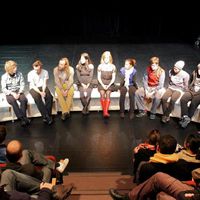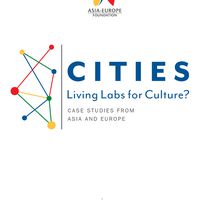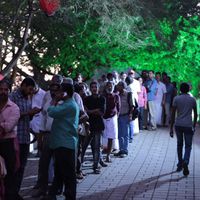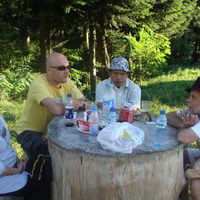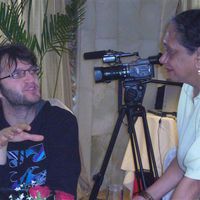Health on Stage: A life-changing experience
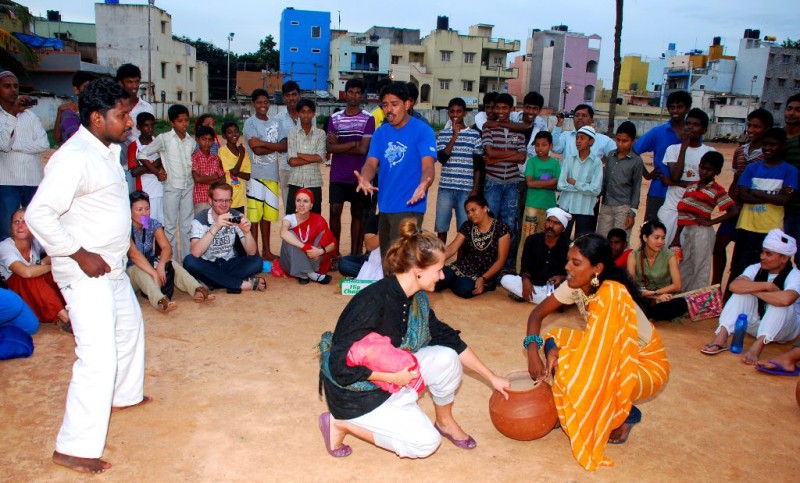
“Nataka, Nataka!” someone cries out.
“Bidi Nataka!” children respond enthusiastically.
“Nataka, Nataka!” The cry is repeated in Kanada, the local language spoken in Bangalore, India, and means “theatre, theatre”.
“Bidi Nataka!” The children’s chorus is heard again saying “street theatre”.
The cries succeeded in attracting the attention of curious bystanders who gather around an open space in a suburb of Bangalore, India. They listen to a short introduction to a play that is about to take place. It will be about preventing water-borne diseases and the performers are a group of young, international volunteers, speaking in a mix of English and local languages. The crowd of about 100 watch and laugh at the simple, improvised play. Half-way through, one of the volunteers, Raju Gowda, who plays the part of the “Joker” claps his hands and calls all the actors to stop.
He turns to the audience and asks if they have anything to say about the play. In no time, they respond, nodding, murmuring to each other and crying out their answers. The Joker then invites the audience members to join the play. After some initial resistance and shyness, some of them agree to join - unaware that they have become a spect-actor in a forum theatre performance.
[caption id="attachment_18709" align="aligncenter" width="576" caption="Aiva Roga, a young volunteer from Latvia, and Rubini, an Indian volunteer, promote hygienic practices to reduce waterborne-diseases through an interactive play."]
The play was part of the Asia-Europe Foundation’s (ASEF) Health on Stage: Enhancing Cultural Competencies for Public Health Dialogue project, which aimed to involve young people in tackling key global public health issues. It gathered 27 participants from 14 countries in Asia and Europe to three cities in India: Bangalore, Chennai and Mysore. They identified crucial health issues in these areas and put together a series of plays from August to October 2011, which reached out to more than 3,000 people from the local communities. The forum theatre format was chosen as it allowed interaction and engagement between the audience and volunteers and thereby, created opportunities for a meaningful dialogue on cultural and health issues.
Another volunteer Felimon Blanco, a theatre practitioner from The Philippines says, “Health on Stage has given me the opportunity to appreciate deeply the value of forum theatre in social transformation. It also proved that people from diverse cultural backgrounds can work together towards a common goal.”
[caption id="attachment_18710" align="aligncenter" width="576" caption="A group of students in a school in Bangalore watches attentively a forum theatre performed by international and local young volunteers."]
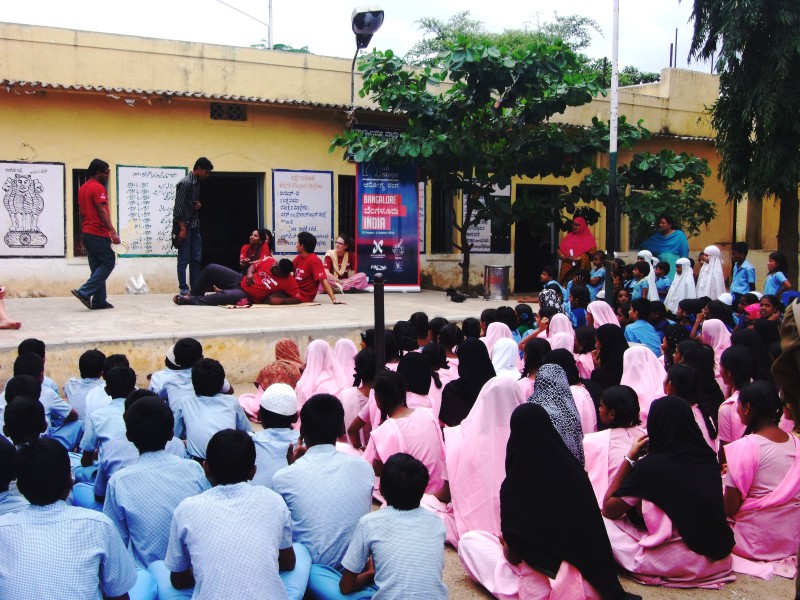 [/caption]
[/caption]Raju regards his participation in this project as a life-changing experience which allowed him to reflect on how arts and culture could contribute to a dialogue on health and social issues.
Health on Stage aimed to enhance cultural competencies and creative thinking of young volunteers in fostering dialogue on public health, focusing on water-related health issues. It was organised in co-operation with the Coordinating Committee for International Voluntary Service (CCIVS) and Field Services and inter-cultural Learning (FSL) India.
The initiative was a response to the recommendations of the Connecting Civil Society Conference 4 (CCS4), an official side-event of the 8th Asia-Europe Meeting Heads of State and Government Summit, which took place in Brussels, Belgium, in 2010. At the Summit, the role of youth in promoting public health was emphasised.
The project coincided with the celebration of the 10th anniversary of International Year of Volunteer which was themed Inspiring the Volunteer in You.
Health on Stage attracted the interest of the Indian media. Public broadcaster Doordarshan interviewed ASEF Deputy Director Ambassador Nguyen Quoc Khanh who spoke at the closing event. While national print media Times of India ran an article titled ‘Social causes attract young volunteers from abroad’. The article Setting the stage for change in Alternative Magazine, an online news site devoted to social issues, said Forum Theatre’s growing popularity is evident and mentioned ASEF’s initiative Health on Stage.
The role of creative dialogue on public health issues will be highlighted in a new publication for international youth organisations active in the field of international volunteering. During the Open Day on 30 September 2011, the project and its results have been shared with interested parties, such as media, NGOs and theatre organisations.
Sasiwimon Wongjarin is Project Officer for Cultural Exchange at the Asia-Europe Foundation.
Similar content
16 Mar 2011
posted on
04 Feb 2016
By Kerrine Goh
30 Aug 2011
posted on
15 Jun 2010
from - to
12 Aug 2011 - 04 Sep 2011

